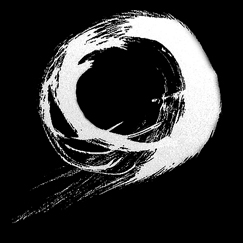
BuddhaWeg-Sangha
Mitglied der Association Bouddhiste Zen d'Europe
Mitglied der Deutschen Buddhistischen Union
|
Memories
of Maezumi Roshi
|
|
I first met Maezumi Roshi in 1963. At that time, he was a young Soto monk working in Los Angeles at Zenshuji under Sumi Roshi, then Sokan of North America. I attended a small zazenkai at Zenshuji. Although I had some familiarity with zazen, walking mediation was new for me. So I asked Sumi Roshi, "What are we doing during walking meditation?" Sumi Roshi turned to Maezumi Sensei and indicated that he should answer. "When we walk, we just walk," was the young monk's reply. Even today I am struck by the simplicity and directness of this teaching. It has guided me throughout all these years. Seven years later in 1970, I was the first person to receive tokudo from Maezumi Sensei. As Maezumi Roshi's one-year memorial approaches, I pause to reflect on my 35 years with him. There are several themes that stand out. First, Maezumi Roshi always stressed the importance of the clarity of one's understanding. If I may use the analogy of an egg, Maezumi Roshi realized the importance of transmitting the egg yolk, the essence of the Buddhadharma, and with unwavering commitment and devotion, he guided his students in realizing this essence. In transmitting the true teachings, Maezumi Roshi empowered his students to also take care of the egg white, the cultural context of the practice, and encouraged his students to develop the appropriate Western forms of practice. Secondly, Maezumi Roshi taught me the importance of lineage. In particular, he emphasized the lineage that represents people who continue in practice until they themselves receive Dharma transmission and, in turn, pass it on. He taught me how rare this transmission is, especially when one considers the many reasons why so many students may stop practicing at some point æ for reasons of doubt, family, work, illness, etc. In actual practice, the odds of someone finishing their formal study is very small. He taught me to really appreciate lineage from that standpoint. In our study together, Maezumi Roshi focused on his own direct lineage. But he also stressed the importance of seeing the many streams that support and make one's lineage work. Of course, it is easier to see the direct causes of things rather than the indirect causes, and yet there are so many indirect streams that are equally important (innen) in shaping things. In this light, Maezumi Roshi often spoke of how important it was to understand the entire Soto lineage, not just one's own, and to appreciate fully how we are supported by it. Now, a year after his passing, I recall how during his last years, Maezumi Roshi focused his untiring energy toward establishing the Soto Zen sect in the United States. Just a few months before his passing, he brought the Japanese and Western Soto Zen groups together at Green Gulch Farm. He created an environment of healing and cooperation, always teaching that the many Soto groups should work harmoniously together. The seeds of his efforts are growing, and today we can feel the effects of his work around the world. Even now I feel his energies and prayers helping and encouraging us to make this cooperation successful. |